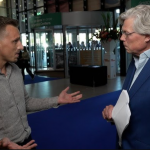Now Reading: The Impact of a Minimalist Lifestyle on Mental Well-Being
-
01
The Impact of a Minimalist Lifestyle on Mental Well-Being
The Impact of a Minimalist Lifestyle on Mental Well-Being

Understanding the Core Principles of Minimalism and How They Translate Into Psychological Clarity
Minimalism, at its essence, is not just about living with fewer possessions but about intentionally shaping one’s environment, habits, and priorities to align with what genuinely matters. It challenges the prevalent cultural narrative that equates worth with accumulation, pushing against the idea that happiness can be purchased or displayed through material ownership. Instead, minimalism reframes the discussion: it asks us to choose with thoughtfulness, to consciously reduce excess, and to acknowledge that less external clutter often leads to greater internal clarity.
From a psychological standpoint, minimalism acts as an antidote to overstimulation. In our hyper-consumerist society, constant exposure to advertisements, social media comparisons, and pressure to “keep up” fuels a cycle of anxiety and dissatisfaction. Rooms overflowing with unused items or digital spaces overwhelmed by endless notifications create subtle but continuous stress signals for the brain. By simplifying and decluttering, individuals actively remove many of these stressors. This shift encourages balance, reduces cognitive load, and makes mental space for reflection and rest.
Furthermore, minimalism nurtures a deeper sense of self-awareness. Without the distractions of excessive possessions, people often find it easier to recognize their true preferences, values, and goals. For many, this translates into the ability to strengthen relationships with loved ones. Rather than relying on material goods as markers of identity, minimalism fosters conversations centered on shared values, experiences, and personal growth. In this way, a minimalist lifestyle moves far beyond aesthetics—it becomes a direct path to psychological renewal and emotional stability.
Ultimately, minimalism provides not just cleaner surfaces and clearer closets—it cultivates clearer minds. When external surroundings are aligned with inner needs, resilience grows, emotional turbulence subsides, and individuals gain a sense of purpose not defined by ownership but by intentional living.
Examining the Tangible and Intangible Mental Health Outcomes of Minimalist Living
While minimalism may appear at first glance as merely a method of organizing, its benefits extend far deeper into mental health and overall well-being. Research and anecdotal experiences alike point to a range of tangible and intangible outcomes that support psychological resilience.
One of the most immediate benefits is the alleviation of cognitive overload. A cluttered home or workspace requires constant background processing—each out-of-place item represents an unfinished task, subtly demanding attention. By streamlining one’s environment, the brain no longer wastes energy on constant visual and mental reminders of disorganization. This leads to enhanced focus, better decision-making, and more efficient use of mental resources.
Minimalism also directly impacts how individuals experience stress and comparison. Modern consumer culture thrives on the message that happiness comes from having more—and having it quickly. This endless pursuit not only breeds financial strain but also heightens anxiety as people constantly measure themselves against others. Minimalist living interrupts this cycle. By deliberately choosing “enough” instead of “more,” individuals free themselves from external validation, thereby lowering the psychological burden of competition and comparison.
Another powerful outcome lies in the realm of emotional liberation. Many people hold onto items for sentimental or aspirational reasons, believing possessions represent security or future success. Yet, these attachments often create invisible weight, tethering people to the past or to unrealistic ideals. Choosing experiences, mindfulness, and presence over accumulation fosters emotional release. What arises in its place is a deeper appreciation for gratitude—valuing what already exists rather than yearning for what is missing.
This cycle of simplicity and gratitude creates a positive feedback loop: reduced external clutter supports reduced internal chaos, which in turn enhances the ability to sustain a minimalist mindset. Neurologically, this can support healthier sleep cycles, as the absence of overstimulation enables the brain to downshift more effectively at night. It also supports stronger emotional regulation, as fewer distractions mean individuals are less reactive and more intentional in their responses. Added to this is the boost in productivity—clear environments make it easier to stay organized and focused, fueling a greater sense of accomplishment and motivation.
Taken together, minimalism represents more than reducing items on a shelf. It is a restructuring of internal frameworks, encouraging individuals to measure life not by possessions but by clarity, relationships, and authentic values. It elevates mental well-being by aligning everyday existence with deeper intentions and gradually transforms the way people perceive happiness and fulfillment.
Conclusion
The true impact of a minimalist lifestyle on mental well-being cannot be reduced to simply “owning less.” Instead, it is about intentionally designing a life that supports clarity, balance, and resilience. By stripping away the nonessential, individuals discover the space to breathe, the ability to prioritize meaningful connections, and the psychological strength to thrive in a culture that often promotes the opposite. Minimalism allows the mind to reset—granting peace, presence, and a greater sense of purpose.
In a world where identity is often defined by possessions, minimalism invites a radical shift: to define ourselves instead by values, awareness, and experiences. Its influence reaches beyond orderly rooms and tidy shelves, offering a profound mental liberation that restores not only balance but also the joy of living more fully with less.

















